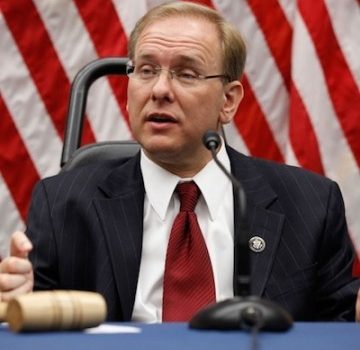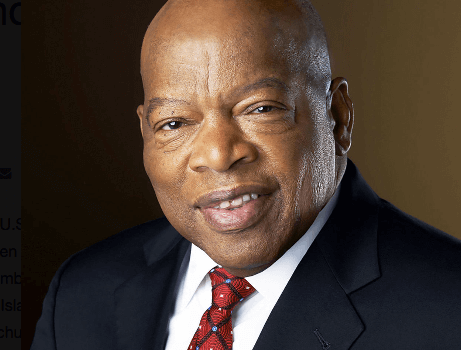By Maria Danilova | The Associated Press
WASHINGTON — Charter school advocate Betsy DeVos won confirmation as education secretary Tuesday by the slimmest of margins, pushed to approval only by the historic tie-breaking vote of Vice President Mike Pence.
Two Republicans, Susan Collins of Maine and Lisa Murkowski of Alaska, joined Democrats in a marathon effort to derail the nomination of the wealthy Republican donor. The Senate historian said Pence’s vote was the first by a vice president to break a 50-50 tie on a Cabinet nomination.
Despite the win, DeVos emerged bruised from the highly divisive nomination fight. Opposed by half the Senate, she faced criticism, even ridicule for lack of experience and confusion during her confirmation hearing. At one point, she said some schools should have guns because of the threat of grizzly bears.
And there has been scathing opposition from teachers unions and civil rights activists over her support of charter schools and her conservative religious ideology.
President Donald Trump accused Democrats of seeking to torpedo education progress. In a tweet before the vote, he wrote, “Betsy DeVos is a reformer, and she is going to be a great Education Sec. for our kids!”
DeVos was sworn in hours after the Senate vote by Pence, who told the new Cabinet member: “I wasn’t just voting for you. Having seen your devotion to improving the quality of education for some of our most vulnerable children across the nation for so many years, I was also casting a vote for America’s children.”
“I can tell you, my vote for Betsy DeVos was the easiest vote I ever cast,” Pence said.
She now takes the helm of a department charged with implementing laws affecting the nation’s public schools with no direct experience with traditional public schools. Her opponents noted that she has no experience running public schools, nor has she attended one or sent her children to one
She also will have to address several hot-button issues in higher education, such as rising tuition costs, growing student debt and the troubled for-profit colleges, many of which have closed down, leaving students with huge loans and without a good education or job prospects.
Close attention also will be paid to how DeVos deals with sexual assault and freedom of speech on campuses.
Ahead of Tuesday’s vote, emotions ran high as constituents jammed senators’ phone lines. Protesters gathered outside the Capitol, including one person in a grizzly bear costume to ridicule DeVos.
Democrats and labor unions vigorously fought the nomination, suggesting that DeVos would defund traditional public schools by diverting taxpayers’ money to charter and private institutions. They cited her financial interest in organizations pushing for charter schools, though she has said she will divest those interests.
Collins and Murkowski said they feared her focus on charter schools will undermine remote public schools in their states.
DeVos supporters, however, saw her confirmation as an occasion to breathe new life into a troubled American school system and a chance to shift power from Washington to the local level.
“She has been a leader in the movement for public charter schools — the most successful reform of public education during the last 30 years,” said Sen. Lamar Alexander, the chairman of the Education Committee. “And she has worked tirelessly to help low-income children have more choices of better schools.”
DeVos has her work cut out.
“She will have to make it a priority to reach out to educators and education policy makers to reassure them that she is committed to working to improve education for all students including the vast majority who attend and will continue to attend traditional public schools,” said Martin West, associate professor of education at Harvard University. “My view is that she is committed to doing that.”
Members of Rhode Island’s all-Democrat congressional delegation have been uniformly critical of DeVos.
“Vice President Pence’s trip down Pennsylvania Avenue today shows just how hard Republicans have had to work to stack and jam President Trump’s underqualified and conflicted nominees through the Senate,” said Sen. Sheldon Whitehouse, a member of the Health, Education, Labor and Pensions Committee.
“Mrs. DeVos had every opportunity to make a convincing case to be Secretary of Education. But, over the course of her confirmation process, she demonstrated a startling lack of understanding of fundamental education issues and laws, including those about students with disabilities, school safety, protecting civil rights, and how to measure success in education As far as I can tell, she has very few ideas at all for improving American higher education.”
“The confirmation hearing of Betsy DeVos as the potential Secretary of Education painted an alarming picture,” added Rep. James Langevin. “She is, quite simply, unqualified for the job, with no real education experience and very little understanding of the complex and critical issues facing the department she hopes to lead. While I do not have a role in the confirmation process, I have received many phone calls, emails and social media feedback from constituents who are overwhelmingly opposed to Mrs. DeVos, and I share their concerns. I applaud Senators Reed and Whitehouse for their strong opposition to Betsy DeVos, and I implore Senate Republicans to heed the outcry from educators and the American people.”
Sen. Jack Reed, speaking at 6 a.m. Tuesday from the Senate floor described his father, a janitor in Rhode Island, who would spend Sundays after a snowstorm shoveling out his school.”I lived with that kind of commitment,” Reed said. “It’s what has driven millions of Americans to reject this nomination.”
Reed said he has received over 12,500 phone calls from Rhode Islanders asking him to oppose her nomination.
“A free, public education has always been a hallmark of this country,” he said. “Without a good public education, how can we be equal? Our constituents want a champion committed to public education. Betsy DeVos is not that person. She is the wrong choice to lead the Department of Education.”
Representative David N. Cicilline, speaking after the vote today added, “It’s disappointing that only two Republicans found the courage to vote against President Trump’s nomination today.”
“As all of us saw during her confirmation hearing, Betsy DeVos is the most unqualified person in history to serve as Secretary of Education. She is the first secretary who has no experience or training in public education. She never worked in a public school. In fact, she never even attended a public school.”
“What Betsy DeVos has done is devote her life to defunding public schools in order to undermine their effectiveness. She is a billionaire lobbyist and Republican donor who has called public schools a ‘dead end’ and argued that ‘we don’t fire teachers enough.’ And since 2000, she and her husband have given millions of dollars to undermine public education and expand unregulated, for-profit charter schools.”
“Republicans should have joined with Democrats to defeat this nomination today. But that would have required real courage. So instead, they once again fell in line behind President Trump and his pro-Wall Street, anti-worker agenda.”
— With reporting by Providence Journal Staff writer Linda Borg










